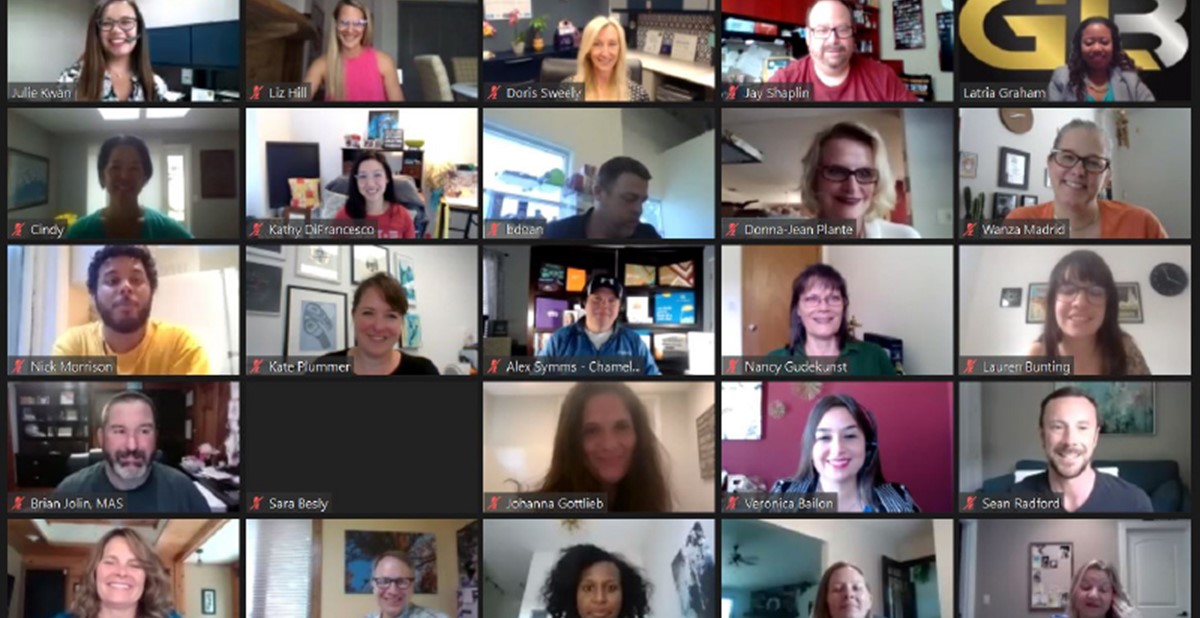Inside PPAI: PPAI's Diversity, Equity And Inclusion Forum Brings Clarity To A Complex Topic

Diversity, equity and inclusion, and how they relate to matters of business, are becoming ever-more relevant with each passing day—and sometimes with each passing moment. These terms are frequently (and incorrectly) used interchangeably but each word represents a distinct component of a three-piece whole, and because of that, one word without the others is an incomplete statement.
Many industries are transitioning to a system designed to better recognize the distinct needs, skills and offerings of their employees, and to ensure that everyone has what they require to perform at their best, and to do so comfortably and confidently.
To address what industry professionals can do to create lasting change in the industry and how they can do it, especially in light of current events, PPAI held its Diversity, Equity And Inclusion Forum on July 23. The virtual forum was free to PPAI members and drew 63 participants—66 percent were distributors, 19 percent were suppliers and 15 percent were business services or regional associations. It was led by PPAI’s Diversity, Equity and Inclusion Team consisting of Julie Kwan, manager of diversity and learning engagement; Kathlene Brethowr, volunteer programs coordinator, and Maurice Norris, public affairs manager, and was moderated by Jody Shaw, CMP, PMP, PPAI’s professional development manager. The two-hour virtual event, which included two roundtable discussions, also featured speakers Seth Weiner, MAS, president of Gaithersburg, Maryland, distributor Sonic Promos, who spoke on the action plan his company developed to implement DEI strategies, and Latria Graham, president of Winter Park, Florida, distributor Graham Leak Branding, who spoke on how she’s navigated as a minority business owner during a time of uncertainty.
The intent of the forum was to present a complex, multifaceted topic and break it into “smaller, more digestible actions,” Kwan says, allowing professionals to take smaller steps to build toward a better collective future. Of those in attendance, more than half (55 percent) said their company did not have a diversity, equity and inclusion strategy in place, or perhaps did, but they didn’t know about it.
To identify challenges that may exist, Kwan opened the discussion by focusing on four key questions: What’s going on in the world today? What are diversity, equity and inclusion? What are some best practices for diversity and inclusion in business? What can you do to effect change in your business? Kwan also provided clarity on key components and terms linked to the DEI discussion. Diversity, she says, “encompasses every person’s unique blend of demographic characteristics.” Equality is “the fair and impartial treatment of every person, regardless of gender, race, disability, religion, nationality, socioeconomic status, sexual orientation, age or any type of diversity,” and equity “acknowledges that people do not all start from the same place.” Simply put, equality suggests that everyone should be given the same, but equity says that each person should get what they need to succeed, Kwan says. Inclusion is “the cultivation of an environment where every person feels welcome and is appreciated for who they are and for what they can distinctively offer—what they bring to the table.”
In the forum, Kwan discussed the many ways that coronavirus has affected today’s diverse pool of employees. While many workers have been laid-off or furloughed, many have also transitioned to working remote. Many of those full-time remote workers, however, also simultaneously become full-time caregivers for their children, due to school closures, and ill family members. Some of those workers may be navigating all these changes and more. She explained that some people of Asian descent have been the target of derogatory verbal and physical attacks because of the origination of the virus. And because of institutional racism, the effect of the coronavirus in communities where Blacks and Hispanics/Latinos live has caused greater challenges for these demographics.
Even though there’s still many layers to unravel on a societal level, and many more discussions to be had, Norris shared small steps that every business, no matter the size, can take to ensure that every employee is recognized, including the use of the round-robin technique in meetings, so everyone attending has a chance to speak, and writing results-based job descriptions. And Brethowr shared certain behaviors that every business can promote to work toward actionable change, like transparency, listening and understanding differences, building trust and acceptance, and designing company culture and values.
Speaking on the forum, Kwan says, “It was encouraging to see everyone who participated in PPAI’s first Diversity, Equity And Inclusion Forum. It’s a first step toward more diverse and inclusive participation in our industry. Change like this takes time, intention and persistence, and PPAI is committed to coming alongside our members as they create more equal opportunities for diverse voices to be seen and heard throughout our industry. Every company and every individual can find ways to speak up and make positive changes toward diversity and inclusion, and we can together make an impact.”
To watch the recorded forum, visit onlineeducation.ppai.org/products/the-ppai-diversity-equity-and-inclusion-forum-on-demand-view. Download PPAI’s Diversity, Equity and Inclusion Playbook at my.ppai.org/benefits/DiversityPlaybook.
–––––––––––––––––––––––––––––––––––––––––––––––––––––––––––
Danielle Renda is associate editor of PPB.

